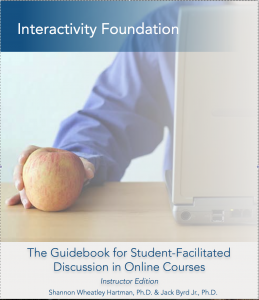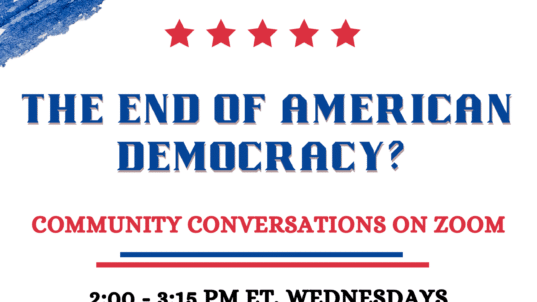By Timothy Ruback, Ph.D.
I teach Political Science, I started teaching in spring of 2002, and lasted more than a decade in higher education without ever having taught an internet course. More than that, being of a certain age, I never took an online course when I was a student. I had no first-hand experience with how they operated, and no understanding of how they’re most effectively structured. So when I was finally asked to teach one, I was like a babe in the woods.
I have to admit, I didn’t initially embrace the idea. I had two initial misgivings. The first was that while I knew how to run a classroom, designing teaching materials to be delivered asynchronously was something that I had no experience doing, and had no vision about how to proceed. I knew my course needed some sort of architecture – some sort of defining regular structure – and I had no idea what it could look like.
But more troublingly, I was worried that the content of my international courses would necessary be diluted by changing the medium from in-person to online. Respectful discussion was always at the forefront of my teaching style and my learning objectives. Having students engage one another and disagree with one another was central to my courses. After all, a reasonably good shorthand definition of politics is how to coordinate group behavior when some members of the group disagree strongly about the ends or goals of the group. The study of politics is, in some ways, the study of navigating different perspectives.
I was genuinely frightened about the prospect of encouraging disagreement and discussion online. After all, some of the worst, most depraved, most angry corners of the internet are comments sections, where substantive engagement is rare and vulgarity is often the order of the day. It seemed foolhardy to encourage online debate about sensitive political issues at the moment sites like the Washington Post were declaring comments sections to be wholesale failures, and scrapping them.
Without any understanding of how to structure a course, and with deep misgivings about encouraging a discussion-based course on the internet, I turned to the Interactivity Foundation. One of the IF fellows, Shannon Wheatley Hartman, shared the IF Guidebook for Student-Facilitated Discussion in Online Courses with me.
The Guidebook was a revelation. It offered a commonsense, easily understandable set of principles that it recommended students embody in their online interactions. More than that, it offered a discussion—based online class structure, articulating the role of discussants and facilitators, clearly describing student roles and responsibilities, and offering advice about how to communicate all that to the students.
Most helpfully, the IF’s descriptions of how to model discussion (the guiding principles of being civil, developmental, exploratory, interactive, and open-minded) fit entirely with the learning objectives I’d always had in my courses. The guiding principles of my course’s design, in other words, helped me reinforce the most crucial lessons of the class.
And with some careful guidance, it worked for the students. Their discussions led to a greater understanding of the class materials than they would have had otherwise. And rather than studying political engagement, they were able to practice it, which was always the most important goal. As for how effective it was, I think this discussion post by a student in my course tells that story quite effectively:
In regards to the balance of using personal experience to further the discussion versus shutting people down. That is something that I need to work on myself.
This just came up recently in a discussion about natural born citizenship in regards to the presidency. The conversation quickly deteriorated when all parties essentially came to the conclusion that they had all the information needed to argue the case and that the other parties simply weren’t willing to listen. In the end we were all right. We were all unable to listen and were too focused on what we knew from our experience to realize we were not talking about the same thing.
When we visited the conversation later I used some of what the guidebook suggested. I asked where they got their information. I genuinely was interested and read what they were referencing and listened to how they came to their conclusion. We were able to come to the realization that we were both correct in our own right but were confused about the specifics of the disagreement. Once those were clarified we were able to further the discussion and talk about how/why the natural born citizen clause came to be and more so what its relevance was or is today.
So if nothing else, this course is helping me out in my own discourse in my personal life. Which is good because I like to discuss politics a lot.
This student found that the IF’s principles for civil discussion didn’t just help him understand the course material. It also helped him become a better politically engaged citizen, and better understand those with whom he disagreed. Putting ideas from the class into practice in one’s own life! Isn’t that what every professor hopes for with regard to her students?




